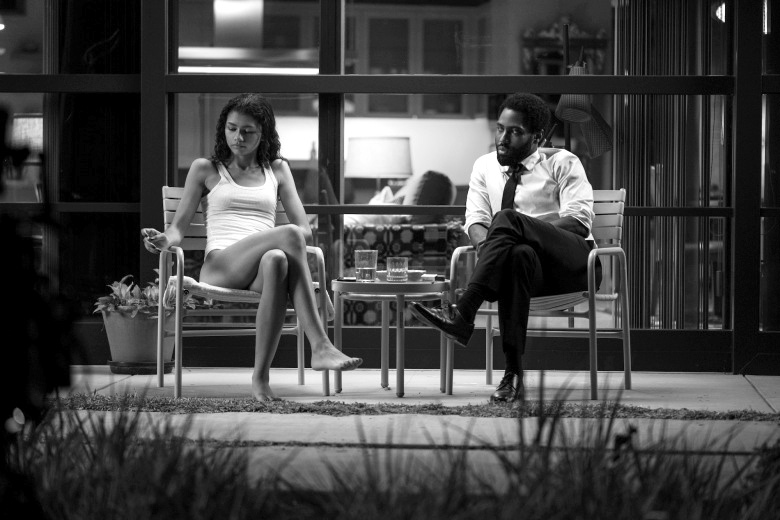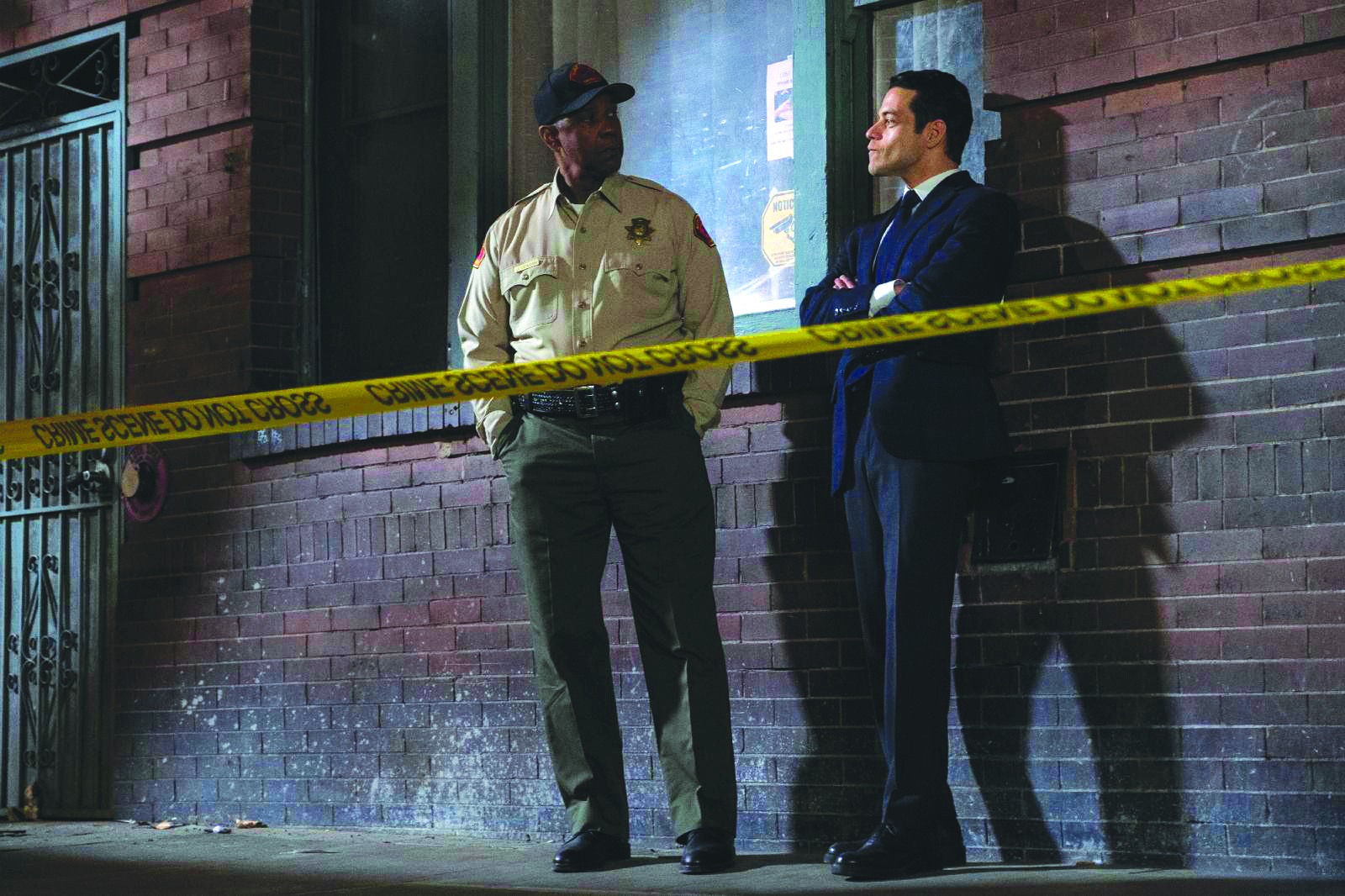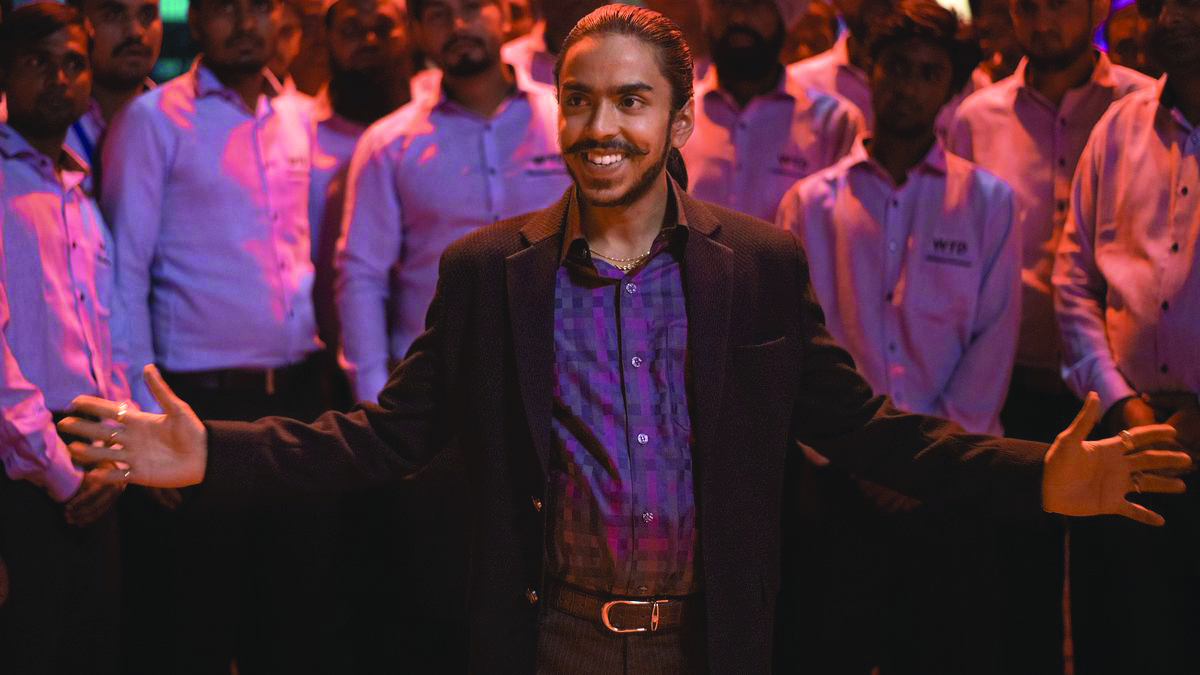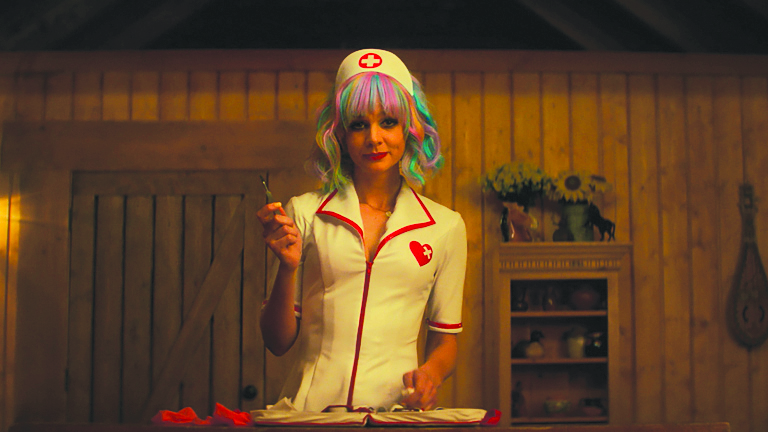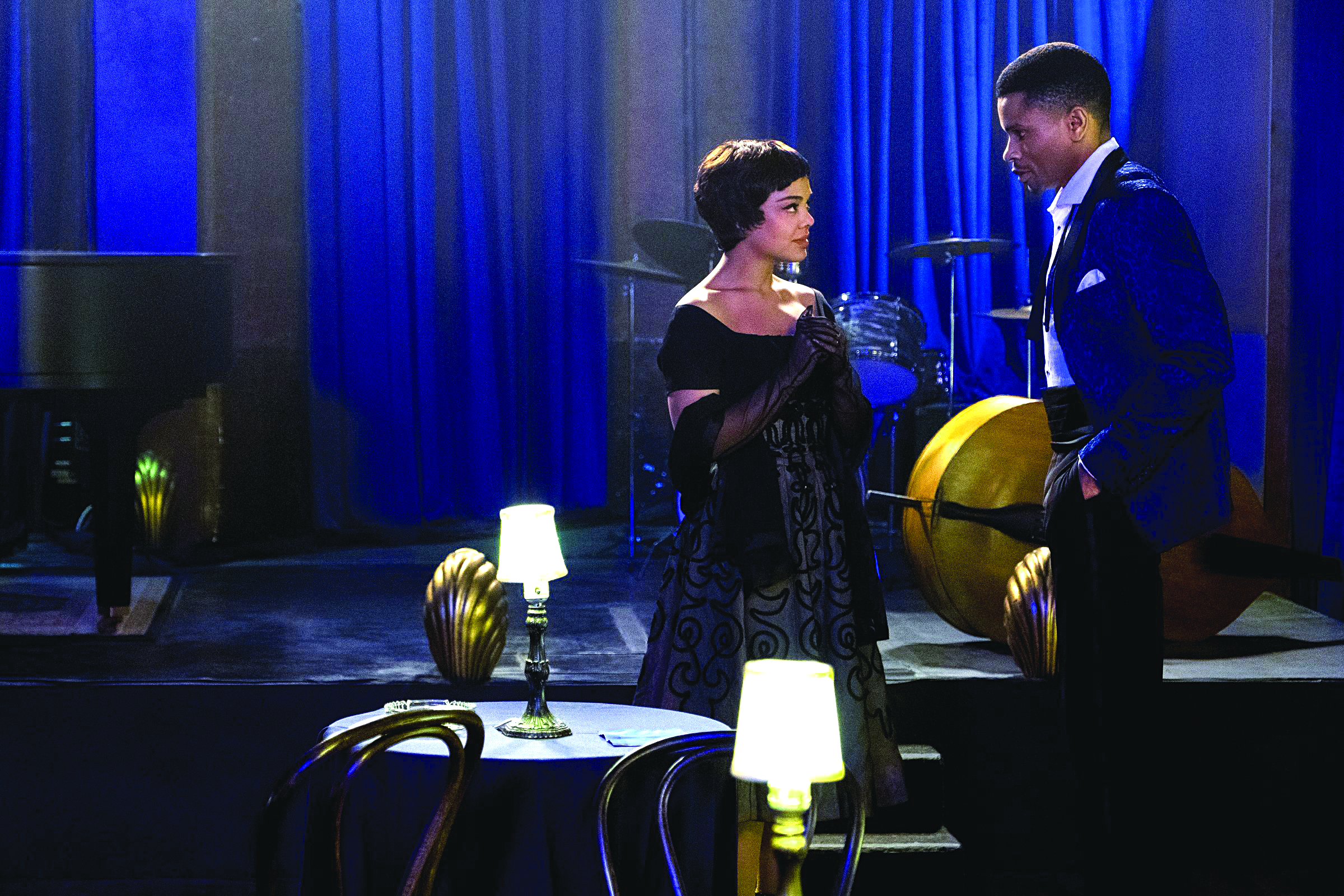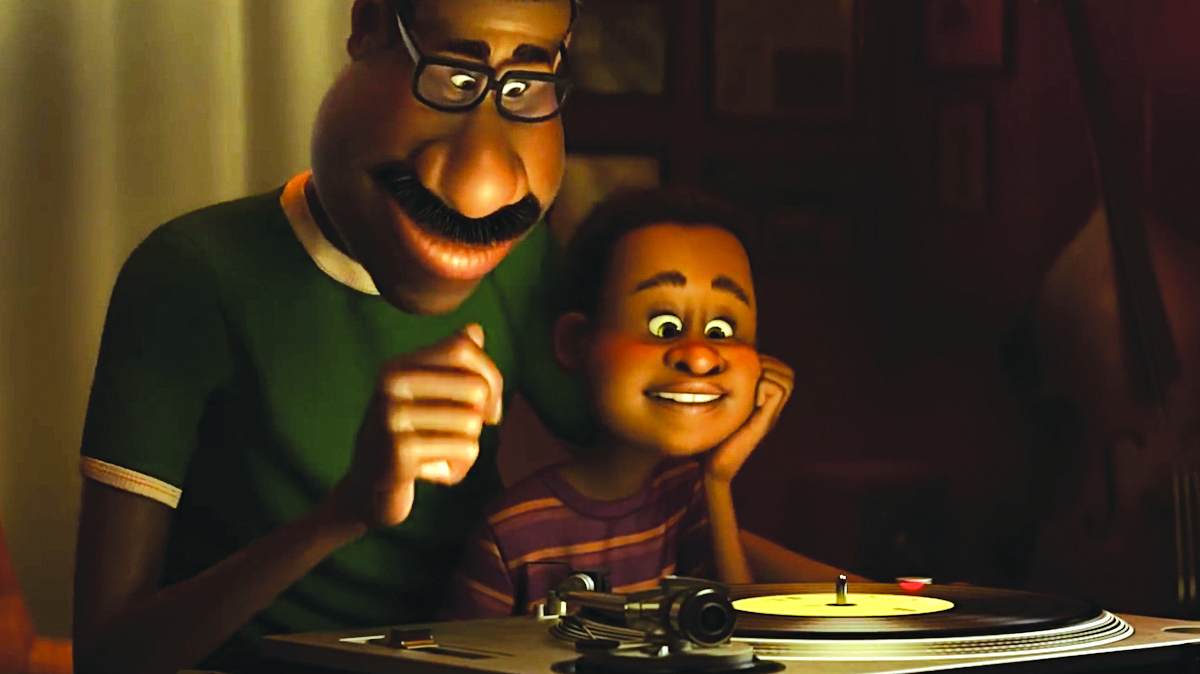Promising Young Woman (R)
Carey Mulligan plays a woman who can’t move on from the wrong done to her friend and the resulting devastation in Promising Young Woman, a dark, occasionally darkly funny, brutal revenge thriller that is expertly well made.
Promising Young Woman is so much more emotionally torturous than comes across in the trailers, which highlight the revenge element but serve it up with dark humor. While it does have dark humor, actually seeing the story play out and knowing the characters, makes everything so much grimmer. I’ve read and heard lots of commentators point this out but it’s worth really highlighting this fact now that the movie is available for home viewing. (I believe this movie is still in area theaters as well.) Be warned: This is not a “bad-girl” funny good time.
That said, this is also an exceptionally well-made movie. It is surgical in its writing; every line has a point. It looks great; so much care has clearly been taken with every shot and with where characters are in the frame and where the movie is directing you to look. I was amazed with how it is all staged and how everybody is costumed and how that all works into what is being conveyed with each scene.
And the performances are strong. Carey Mulligan brings a lot of layers to Cassie, a 30-year-old woman who is stuck in her grief. During the day, Cassie is being her “real” self — but with a wall of dry humor and disinterest to keep people at arms length.
At night, Cassie goes out as someone else. She’s made up and dressed up and nearly-falling-down drunk. Or really “drunk,” because the unsteady walk and halting speech are just an act. Eventually, some Nice Guy (played by Adam Brody or Sam Richardson or Christopher Mintz-Plasse) comes over to “help her,” to “protect her from those jerks.” This seems to eventually involve taking her to their house, offering her more intoxicants and starting to make out with her, or really make out on her because she doesn’t engage. And then, suddenly, she soberly looks them in the eyes and asks them what they think they’re doing, to their absolute terror.
Cassie does this in the name of Nina, her best friend from childhood through their time in medical school. We learn piece by piece that something terrible happened to Nina, who is always talked of in the past tense. The terrible thing — which the movie makes clear involved sexual assault even before we know the details — has traumatized Cassie too. She lives with her parents (Jennifer Coolidge, Clancy Brown), who seem supportive but also scared and sad for their daughter. She works at a coffee shop and won’t even consider the promotion offered by her kind boss (Laverne Cox). And she has no contact with any other friends or anybody from school, at least until Ryan (Bo Burnham) comes into the shop and, after some chat, asks her out. She is wary with him too but slowly starts to wonder if maybe he really is a nice guy and maybe there could be more to her future.
This movie is written and directed by Emerald Fennell (known, as an actress, for roles in Call the Midwife and The Crown). This is her first feature-length movie, which makes the excellence in execution seem all the more extraordinary. I heard somebody on a podcast (maybe This Had Oscar Buzz) compare her to Jordan Peele and his initial outing Get Out and I thought of that comparison while watching the movie. There is a similar thoughtfulness and preciseness in both movies. It’s rare to see someone completely ace their first outing the way Peele did and Fennell does here. I don’t know that I’ll ever bring myself to watch this movie again but I can’t wait to see what she does next. A
Rated R for strong violence including sexual assault, language throughout, some sexual material and drug use, according to the MPA on filmratings.com. Written and directed by Emerald Fennell, Promising Young Woman is an hour and 53 minutes long and is distributed by Focus Features. It is in local theaters and available for rent.
One Night in Miami (R)
Malcolm X, Muhammad Ali, Sam Cooke and Jim Brown hang out together after Ali’s fight with Sonny Liston in One Night in Miami, a movie based on a play of the same name and directed by Regina King.
You can still feel the play in elements of this movie, which is largely made up of the four men hanging out in a hotel room, talking and arguing. Malcolm X (Kingsley Ben-Adir); Muhammad Ali, still going by Cassius Clay (Eli Goree); football player-turned-actor Jim Brown (Aldis Hodge) and singer Sam Cooke (Leslie Odom Jr.) gather in Malcolm’s room after the fight in 1964. The plan is to have a party but Malcolm offers only vanilla ice cream and conversation. Cassius is on the verge of announcing his conversion to Islam. Malcolm seems proud but also conflicted — he is in the process of making a break from the Nation of Islam. Jim has recently shot his first movie and seems to be considering leaving the NFL. Sam is preparing for a show at a venue where he previously bombed — and working on some new music. The friendship of these men is strong but the momentum of their own careers and their various approaches to the civil rights movement are points of friction between them.
To some extent the movie at its core is “just” conversation, but it’s engrossing conversation between people who feel multidimensional, with more layers than just “history’s Malcolm X.” We see just enough of these men’s lives to get a hint of what they’re bringing into the room, their hopes, their insecurities, what things inform their point of view.
The performances here are stellar across the board but I will admit that my eyes kept landing on Odom and his take on Cooke. He plays Cooke as someone who is canny about his profession and how to make it make money for himself and for other African American artists but he still has those desires to say something more through his songs. Maybe Hamilton just sort of taught me to look for “guy working at several levels” from Odom but I feel like he’s doing it again here and it pulls his Cooke to the center of the story even if Malcolm X and Muhammad Ali have the bigger personalities. A
Rated R for language throughout, according to the MPA on filmratings.com. Directed by Regina King with a screenplay by Kemp Powers (who also wrote the play), One Night in Miami is an hour and 54 minutes long and is distributed by Amazon Studios and available via Amazon Prime.
News of the World (PG-13)
Tom Hanks plays the Tom Hanks character who is unexpectedly tasked with bringing an orphan to her distant relatives in post-Civil War Texas in News of the World.
This is basically Hanks’ Greyhound if you replace “get convoy of ships to the U.K.” with “get little girl to the Texas Hill Country” and “outrun Nazi submarines” with “outrun Old West-y villains.”
I mean that in the best way; I liked Greyhound. Here as there, Hanks is a man who calls on his quick thinking and basic decency to complete his hero’s journey. Is chicken parm the most inventive dish in the world? No, but few things are better than a really good chicken parm. Hanks is serving up some very classic cuisine and doing it expertly.
Capt. Jefferson Kyle Kidd (Hanks), mostly just called Captain, was once a Confederate soldier but he seems very “bind up the nation’s wounds” for some “just and lasting peace” about the whole thing. Now, 1870-ish, he travels the Texas countryside and reads newspapers to audiences who pay a dime a person for this in-person Walter Cronkite action. Captain is lively but down the middle with his news reading, not allowing meetings to turn into anti-federal-troops gripe sessions, for example.
While on the road, he comes across a wrecked wagon and an African American federal agent who has been lynched — which, the movie makes clear, Captain finds appalling. He figures out that the man was tasked with transporting Johanna (Helena Zengel), the young blonde girl hiding nearby, who had been living with the Kiowa tribe. When the Kiowa were forced off their land, Johanna’s Kiowa parents were killed and Johanna, who only knows her name as “Cicada,” found herself orphaned for a second time. She lost her biological parents as a young girl when their settlers’ village was raided. She doesn’t appear to retain any memory of that life — or of being called Johanna — and doesn’t speak English.
Captain tries to turn her over to the Bureau of Indian Affairs at the next town but he’s told that the agent won’t be back for months. Eventually he agrees to take her on the several weeks’ drive south to find a biological aunt and uncle. Along the way they encounter various people who want to kill (or in Johanna’s case, kidnap) them, but Captain’s Hanks-y cleverness helps them deal with dicey situations. To pay for their journey, he continues his news-reading work, with Johanna collecting dimes from the crowd and learning to enjoy his stories.
There is nothing surprising here but everything here is done really well. Zengel is a solid child actor, communicating a lot with her face. Hanks, of course, is top notch, turning in the high-quality performance that seems like rote for him but is really the demonstration of extraordinary skill. Director Paul Greengrass is able to show us a country still mired in all kinds of conflict and aware of what our modern opinions will probably be without turning Captain into some kind of anachronistic saint. Even when the movie veers into “OK, this is a bit much” it is able to pull off the sandstorms and the town full of weird and violent separatists thanks to the skill of everybody involved. B
Rated PG-13 for violence, disturbing images, thematic material and some language, according to the MPA on filmratings.com. Directed by Paul Greengrass with a screenplay by Paul Greengrass and Luke Davies (from a novel by Paulette Jiles), News of the World is an hour and 58 minutes long and distributed by Universal Studios. It is playing in local theaters and available for rent.
Featured photo: Promising Young Woman (R)

